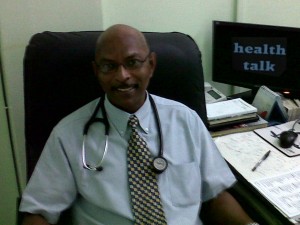
It occurs to me that in covering topics in medicine in our society, it is often necessary to do just that – present the facts, and dispel the myths. So let’s talk about pain a little today.
FACT: Weather can affect pain
It is not your imagination if your joint pain gets worse when it’s cold or raining. Studies have shown mixed results, but it is generally accepted that changes in barometric pressure can cause some people – especially people with arthritis – to have increased pain in their joints. Experts think this is because the change in barometric pressure affects joint pressure.
FACT: Women Handle Pain Better
Women point to childbirth as proof that their pain capacity is greater, and some science backs this up. Women and men tolerate pain differently. Women use more coping mechanisms to deal with pain. They seek treatment more quickly and tend to recover from pain faster than men. But, say experts, pain is such an individual experience that it’s hard to compare one person’s pain to another’s.
MYTH: Rest is Good for Back Pain
Although short rest may be prescribed, it’s best to remain active. Experts say that complete bed rest is one of the worst things you can do for back pain. If you’re not active, your body quickly becomes deconditioned – causing even more pain when you eventually move. Limit exercise during acute episodes of pain but continue daily activities and exercise as your doctor orders, as much as you can.
FACT: Losing Weight Can Ease Pain
If you are overweight, know that having less weight on your body means less pressure – and less pain – on your joints and back. It is said that every pound a person is overweight is equivalent to an extra four pounds on their joints. Dropping a few extra pounds can really help improve joint pain in the knees and hips. Even ten pounds can make a huge difference. Losing weight also can help back pain caused by muscle fatigue.
FACT: Exercise Curbs Painful Flares
Although pain may make it harder to exercise, staying active is one of the best things you can do
to feel better. Exercise can help you lose weight , sleep better, and boost you mood – all of which can also help reduce pain. Exercise helps strength muscles, ease stiff joints, and restore coordination and balance. Low-impact exercises, like walking, swimming, and stretching, are good ways to start.
MYTH: If Pain Can’t be found, it’s not Real
Just because you can’t find the exact source of someone’s pain doesn’t mean they don’t feel it. No one can measure the intensity of pain, no imaging device can show pain, and no instrument can locate pain precisely. This does not mean pain can’t be treated. We don’t need to know the exact cause of the pain to try to make it feel better.
MYTH: Don’t Worry About Minor Pain
Many people believe that pain is just something you have to live with, yet pain should never be ignored. Even if your pain gets better with over-the-counter pain medication, see doc if the pain last s more than a week or two, becomes worse over time, or if it interferes with your daily activities.
FACT: Your Attitude Can Affect Pain
Dwelling on your pain can make it feel worse. Those who focus on their pain tend to do poorly compared with those who have a proactive attitude and try to find ways to cope with their pain. Pain can lead to depression and anxiety, which can then make pain worse. Consider counseling to help cope with your pain.
MYTH: No pain, No gain
It’s o.k. to push yourself until you feel the burn of exercise but it’s important to know when to stop. Pain is your body’s way of telling you that something is wrong. You should never feel pain when exercising. If you do, stop and take a break. To stay safe, learn what your limits are, and stay within them.
MYTH: Pain is Just Part of Aging
Like gray hair and wrinkles, a few aches and pains are a part of nearly everyone’s life. But chronic pain – which can increase suffering and decrease quality of life – doesn’t have to be.
Most people should be able to lead relatively pain-free lives as they age. If you are bothered by chronic pain, a pain specialist or a doctor who has a special interest in pain management can help you find relief – no matter how old you are.
MYTH: All Pain Killers Lead to Addiction
When taken as directed, prescription pain medications rarely cause addiction. However, as with many drugs, your body can become physically dependent on pain medication, particularly those that are called narcotic analgesics or opioids. Although this doesn’t mean you’re addicted, you may have withdrawal symptoms if you stop the drug abruptly. It’s an expected response when a prescription pain drug is used for more than a few days. Doc can help you stop safely.
See you next week.

Thanks for the article doctor.
Thank you Doc for another informative article